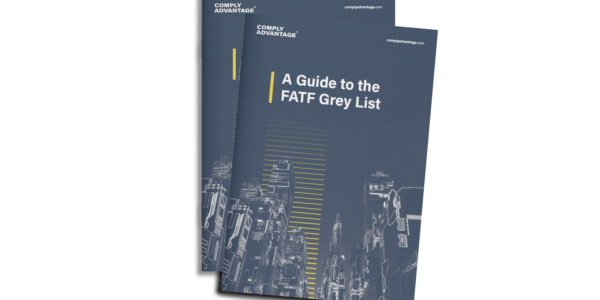

February 17-21, 2025 marked the Financial Action Task Force’s (FATF) first plenary of the year and the second under Elisa de Anda Madrazo’s presidency. Key developments from the plenary include:
- Changes to the grey list.
- Strategic initiatives to improve global financial inclusion through a risk-based approach.
- The announcement of a new FATF report on combating online child sexual exploitation.
- Leadership transitions with the appointment of a new Vice-President.
- New public consultations to refine FATF standards.
- Initiatives to diversify perspectives and promote women’s leadership within the FATF network.
This article covers some of the key takeaways and what they mean for compliance professionals.
1. Additions to the grey list
Nepal
While Nepal made legislative amendments in 2024 to align with FATF standards, the country has struggled with implementation and enforcement, particularly in financial sector oversight, prosecutorial effectiveness, and regulatory compliance.
The Asia/Pacific Group on Money Laundering (APG) had previously flagged Nepal’s slow response to key recommendations from its 2022 mutual evaluation report (MER), which highlighted persistent gaps in monitoring high-risk sectors and financial crime enforcement. These shortcomings, coupled with Nepal’s historical challenges in maintaining financial transparency, led the FATF to place the country under increased monitoring.
Laos (The Lao People’s Democratic Republic)
Despite Laos’ steps to address recommendations from its 2023 MER – such as bolstering financial intelligence unit (FIU) resources and eliminating bearer shares – the FATF found significant challenges remained regarding the country’s risk assessment process, regulatory oversight, and law enforcement effectiveness.
As a result, the FATF added Laos to the grey list and highlighted the following key areas for improvement:
- Enhancing risk-based supervision of high-risk sectors, including casinos and special economic zones (SEZs).
- Strengthening the dissemination of financial intelligence to relevant authorities.
- Increasing money laundering investigations and prosecutions, with a focus on transnational financial crimes.

A Guide to the FATF Grey List
Our expert guide takes firms through the importance of the grey list, what FATF assessments look for, and how firms should respond to a grey-listing.
Download now2. Removals from the grey list
The Philippines
The decision to remove the Philippines from the grey list follows nearly four years of the country working closely with the FATF to address and rectify strategic deficiencies identified in its financial regulatory framework.
The FATF commended the Philippines for its significant progress, particularly in enhancing legislative measures – including amending the Anti-Money Laundering Act (AMLA) in 2021 and mandating all relevant agencies to actively participate in national risk assessments concerning money laundering and terrorism financing in October 2023. An on-site evaluation confirmed the effective implementation of these reforms, leading to the country’s removal from the list.
3. Strategic initiatives
Advancing financial inclusion through a risk-based approach
Recognizing that approximately 1.4 billion people worldwide lack access to banking services, the FATF has revised its standards to promote financial inclusion. Following a public consultation with over 140 responses from diverse stakeholders – including non-profit organizations, financial institutions, and academics – the FATF will amend Recommendation 1.
This change encourages member countries to apply a risk-based approach to AML/CFT measures, allowing FIs to implement simplified procedures where risks are lower, thereby facilitating broader access to financial services. This initiative addresses concerns from a 2021 review, which highlighted issues such as de-risking and financial exclusion resulting from improper application of risk-based approaches.
Targeting online child sexual exploitation
The FATF announced it will release a new report on how financial intelligence can be used to detect, disrupt, and investigate the alarming rise of live-streamed child exploitation and sextortion. According to de Anda, the report will highlight:
- How financial transactions can reveal offenders, link them to victims, and enable early intervention by authorities.
- New red flags and transaction patterns that indicate suspicious activity linked to online child sexual abuse, including the use of prepaid cards, peer-to-peer transactions, and micro-payments.
- The need for stronger partnerships between financial institutions, law enforcement, and technology companies to disrupt illicit financial networks facilitating child exploitation.
The report’s official launch is scheduled for March 13, 2025.
4. Enhancing global collaboration and leadership
Appointment of a new Vice-President
The plenary selected Giles Thomson from the United Kingdom as the next FATF Vice-President, succeeding Jeremy Weil from Canada. Thomson, currently serving as Director of the Office for Financial Sanctions Implementation (OFSI) and Economic Crime at HM Treasury, will assume the role on July 1, 2025, for a two-year term.
Public consultations to refine FATF standards
To embed recent changes promoting a risk-based approach and financial inclusion, the FATF is working on updated guidance for policymakers and regulators. Public consultations are being conducted to gather feedback, ensuring practical implementation of these standards.
Additionally, the FATF is seeking input on potential revisions to Recommendation 16, aiming to enhance payment transparency by standardizing originator and beneficiary information. This effort seeks to balance the facilitation of faster, more affordable payments with robust defenses against illicit finance.
5. Strengthening the global network
Guest jurisdiction initiative
Under the Mexican Presidency, the FATF has intensified efforts to include voices from regions with limited representation. The guest jurisdiction initiative invites countries to participate in plenary discussions on a rotational basis. This session welcomed Kenya – the first guest non-member from the East and Southern Africa Anti-Money Laundering Group (ESAAMLG) – joining the Cayman Islands and Senegal, to provide diverse perspectives and promote regional engagement.
Women in FATF and the Global Network (WFGN) initiative
A successful event was held to support the WFGN program, focusing on advancing women’s careers within the FATF and its global network. Proposals discussed include the launch of the second edition of the FATF Mentoring Programme in March 2025, aiming to provide guidance and support for female professionals in the field.
Next steps
You and your team should familiarize yourselves with the outcomes of the February 2025 plenary, especially the changes to the grey list and updates related to FATF’s strategic initiatives. You may need to update the risk scores for relevant countries added to or removed from the grey list, and ensure that appropriate levels of due diligence are applied going forward.
It’s also important to stay informed about the upcoming FATF report on online child exploitation and any new guidance related to financial inclusion. These developments could influence your team’s approach to regulatory compliance and the implementation of AML/CFT measures in the jurisdictions in which you operate.
The next FATF plenary is due to take place in June 2025.
Previous plenary coverage from ComplyAdvantage can be found here:
The State of Financial Crime 2025
Packed with practical tips from our team of subject-matter experts, our annual report explores the major trends and topics set to shape the year in compliance.
DownloadOriginally published 24 February 2025, updated 24 February 2025
Disclaimer: This is for general information only. The information presented does not constitute legal advice. ComplyAdvantage accepts no responsibility for any information contained herein and disclaims and excludes any liability in respect of the contents or for action taken based on this information.
Copyright © 2026 IVXS UK Limited (trading as ComplyAdvantage).
